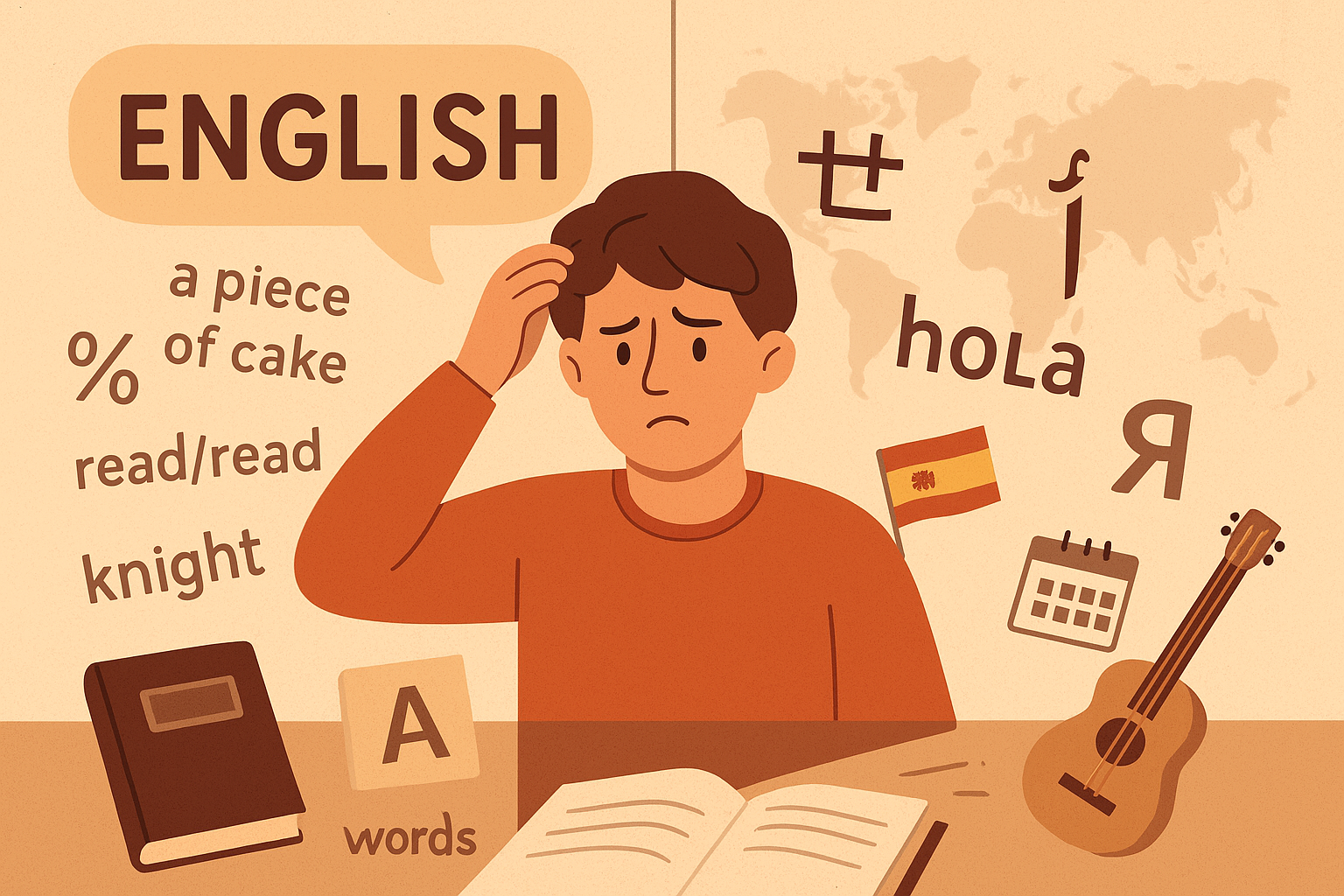English is often described as the global language, but ask any non-native speaker, and you’ll hear a mix of admiration and frustration. With confusing spelling rules, endless idioms, and tricky grammar exceptions, many wonder: is English the hardest language to learn? The answer isn’t so simple. While English poses challenges, it’s not necessarily the most difficult language for everyone—it depends largely on the learner’s native tongue, exposure, and goals.
Why English Is Considered Hard to Learn
1. Inconsistent Spelling and Pronunciation
One of the most notorious difficulties in English is the lack of consistency between spelling and pronunciation. Words like though, through, tough, and thought all look similar but sound completely different. This inconsistency makes English especially daunting for beginners.
2. Phrasal Verbs and Idioms
English is packed with phrasal verbs like “pick up,” “give in,” or “run out.” These can’t be directly translated word-for-word, which makes them tricky for learners. Add in idiomatic phrases like “kick the bucket” or “spill the beans,” and even advanced learners find themselves puzzled.
3. Grammar Exceptions
While English grammar may seem simpler compared to highly inflected languages, the problem lies in its exceptions. For instance, irregular verbs like go → went or buy → bought follow no clear pattern. Plural rules also get confusing (mouse → mice, child → children).
Is English One of the Hardest Languages to Learn?
From a linguistic perspective, English isn’t ranked as the hardest language overall. The Foreign Service Institute (FSI) in the United States classifies English as easier to learn than languages like Arabic, Mandarin Chinese, or Japanese, especially for speakers of European languages.
However, English has unique barriers that make it feel harder than it actually is. Compared to languages with more phonetic spelling, like Spanish, English requires learners to memorize far more exceptions.
For example, if you’ve ever wondered how long it takes to learn Spanish, you’d quickly realize that consistent pronunciation rules and logical grammar make Spanish more straightforward than English in many ways.
Why English Can Be the Hardest Language for Some
1. Native Language Influence
If your first language shares roots with English (like German or Dutch), you’ll find English easier. But for speakers of languages with different scripts or grammar structures, such as Chinese or Arabic, English can feel like an uphill climb.
2. Cultural Nuances
Understanding English isn’t just about grammar—it’s about mastering tone, humor, and cultural references. Words like “fine” can mean completely different things depending on context, making it harder to achieve fluency.
3. Homophones and Confusing Words
English is filled with words that sound alike but have different meanings (there, their, they’re). Mastering these nuances can be frustrating even for advanced learners.
What Is the Hardest Language to Learn for English Speakers?
If English learners struggle with spelling and idioms, what about the reverse? For native English speakers, the hardest languages are typically those that differ dramatically in script, grammar, and sound systems. According to linguists, the toughest include:
- Mandarin Chinese – Complex characters, tones, and grammar.
- Arabic – A different script, regional dialects, and challenging pronunciation.
- Japanese – Three writing systems and context-heavy expressions.
- Korean – Unique grammar and cultural levels of speech.
This shows that language difficulty is always relative—it depends on the learner’s starting point.
Why English Is Still One of the Most Practical Languages to Learn
Despite its quirks, English remains the most widely studied second language worldwide. Its dominance in business, technology, media, and education makes it incredibly valuable. Many learners persist not because English is easy, but because the opportunities it unlocks far outweigh its difficulties.
Final Thoughts: Is English Really the Hardest Language?
So, is English the hardest language to learn? Not quite. While it certainly presents challenges—irregular spelling, idioms, and countless exceptions—it isn’t universally the hardest. For some learners, especially those from language families unrelated to English, it can feel extremely complex. For others, particularly European language speakers, English may actually be easier compared to Asian or Middle Eastern languages.
What’s undeniable is that English requires patience, immersion, and consistent practice to master. And while it may not hold the official title of hardest language, its quirks make it one of the most fascinating to study.











